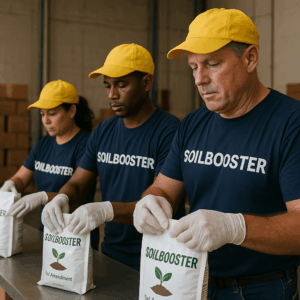With a recent free trade agreement with the UK, India's Commerce Minister Piyush Goyal believes that negotiations with the US are on the right track. However, significant challenges remain, particularly regarding agriculture tariffs.
India and US Trade Deal Talks Show Progress Amid Challenges

India and US Trade Deal Talks Show Progress Amid Challenges
India's Commerce Minister expresses optimism about trade negotiations with the US, signaling potential breakthroughs despite ongoing issues.
In a significant development for international trade, India’s Commerce Minister Piyush Goyal announced from London that they are making “fantastic progress” in talks for a trade deal with the United States. This statement follows his signing of a key free trade agreement with the UK, reflecting India's increasing engagement in international trade discussions.
Despite this optimism, trade relations between India and the US have faced challenges, with previous deadlines for finalizing the deal repeatedly missed. President Donald Trump has set a new target of August 1 for India to finalize a trade agreement, warning of potential tariffs on Indian goods if no agreement is reached. In an earlier move, Trump imposed a 26% tariff on a range of Indian products, though this was initially put on hold until July 9 and has since been extended.
In Goyal's comments to Reuters, he expressed hope that a substantial partnership could soon be concluded. Acknowledging ongoing negotiations surrounding tariffs on agriculture and dairy—India's main points of contention—he emphasized that discussions remain confidential.
Trump recently echoed a positive outlook regarding the negotiations, suggesting that the two nations are "very close" to reaching an interim agreement, with aspirations to finalize a bilateral deal by year’s end. While Goyal also shared confidence with Bloomberg regarding achieving a deal ahead of the deadline, the path to resolution remains precarious, particularly with longstanding US demands for increased access to India's agricultural market, which India is reluctant to compromise due to concerns over food security and the welfare of small farmers.
Historically, the US was India's largest trading partner, with bilateral trade hitting $190 billion, but both leaders aspire to significantly elevate this number to $500 billion in the near future. India has previously eased tariffs on various American imports, including Bourbon whiskey and motorcycles; however, a substantial trade deficit persists, amounting to $45 billion, which Trump is eager to address.
Despite this optimism, trade relations between India and the US have faced challenges, with previous deadlines for finalizing the deal repeatedly missed. President Donald Trump has set a new target of August 1 for India to finalize a trade agreement, warning of potential tariffs on Indian goods if no agreement is reached. In an earlier move, Trump imposed a 26% tariff on a range of Indian products, though this was initially put on hold until July 9 and has since been extended.
In Goyal's comments to Reuters, he expressed hope that a substantial partnership could soon be concluded. Acknowledging ongoing negotiations surrounding tariffs on agriculture and dairy—India's main points of contention—he emphasized that discussions remain confidential.
Trump recently echoed a positive outlook regarding the negotiations, suggesting that the two nations are "very close" to reaching an interim agreement, with aspirations to finalize a bilateral deal by year’s end. While Goyal also shared confidence with Bloomberg regarding achieving a deal ahead of the deadline, the path to resolution remains precarious, particularly with longstanding US demands for increased access to India's agricultural market, which India is reluctant to compromise due to concerns over food security and the welfare of small farmers.
Historically, the US was India's largest trading partner, with bilateral trade hitting $190 billion, but both leaders aspire to significantly elevate this number to $500 billion in the near future. India has previously eased tariffs on various American imports, including Bourbon whiskey and motorcycles; however, a substantial trade deficit persists, amounting to $45 billion, which Trump is eager to address.




















